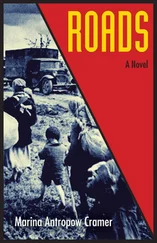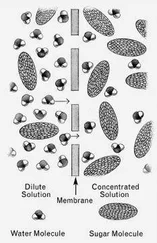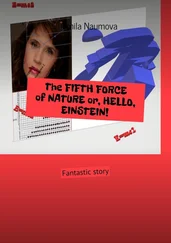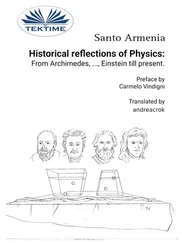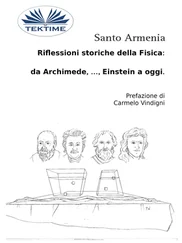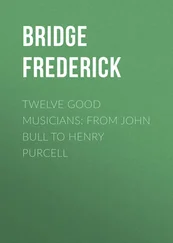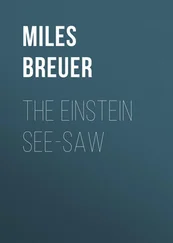— SENATOR PHIL GRAMM (R-TEXAS)
February 3,
[The SSC] represents a national commitment to excellence and leadership in research… [The Space Station] is an investment in neither excellent science nor excellent technology… It is the past brought forward.
—GEORGE “JAY” KEYWORTH, THE HUDSON INSTITUTE, FORMER REAGAN PRESIDENTIAL SCIENCE ADVISOR
April 7, 1989
If [the SSC] is worth $5 billion to us, then the innovative technology that would flow from it should be used to the benefit of Americans and not given away to other countries.
— REPRESENTATIVE BRYANT, TEXAS STATE LEGISLATURE (R.-DALLAS)
ALICE STOOD IN THE FRONT YARD OF THE FURNISHED house she had rented sight unseen before leaving Tallahassee, a Waxahachie gingerbread belonging to an SSC physicist who had gone on leave for two months to organize a summer physics workshop in Aspen, Colorado. She liked the house; after three years in a small apartment, she enjoyed the extra space. It was turning out to be a pleasant environment for her writing, too.
She held her notebook in one hand, surveying the roofline of the house for sagging gutters or loose shingles. She had heard about the sometimes spectacular weather patterns of Central Texas and did not want any roof water leaking on her computer equipment and papers. The house, however, appeared to be in good condition.
“He’p you, ma’am?”
Alice turned and saw a man leaning on the white picket fence that separated her house from the one next door. He was about her age, tall and slim, his pleasant face crowned with a shock of unruly white-blond hair.
She smiled. “Hello,” she said. “I’m Alice Lang. I’m a writer. I’ve rented this house for two months. Are we neighbors?”
“Sure are, ma’am,” the man said. “I’m Whitey Buford.” He indicated the building behind him. “I was born in that there house, and m’ grandma and I still live here. I’m a master electrician. Been workin’ at the Super Collider for the last few years.”
Alice looked at him with interest. He wore soft jeans and a Western shirt. He held himself like someone in a Frederic Remington painting, and his speech pattern was a distillation of the local Texas dialect she’d been immersed in since her arrival. She noticed that his pale blue eyes had a hidden glint of sharp intelligence. “I’m very pleased to meet you, Mr. Buford. I’m doing a story for Search magazine about the people who work at the SSC. I’d like very much to interview you for my story.” She meant it. In the past she’d gotten some of her best material from smart folksy locals, and Whitey seemed to be another one.
“Call me Whitey, ma’am. Everybody does.” He suddenly looked shy. “Don’t know what I could tell you, though, compared to all those scientists out at the site. They’re the ones that know what’s goin’ on. They tell me what needs to be done, and I do it.”
Alice nodded. She had planned to see more of the laboratory before she began interviewing the Waxahachie townspeople, but Whitey was a source worth cultivating. “So, Whitey,” she said, “you’re from around here. What are the good restaurants in the area? You know, where one might go for a special occasion?”
Whitey stroked his sideburn. “Well, now,” he said, “there’s the Texas Choice Steakhouse on the left side of Interstate 35 north o’ town near De Soto. They have pretty good steaks and barbecue. The K-Bob Steakhouse in town ain’t bad, neither. It’s part of a chain. The little Cafe on the Square has real good chicken-fried steak. And that fancy restaurant at the Denim Ranch Inn is supposed to be good. Never been there myself.
“ ‘Course, if you want the real fancy eatin’ round here, you have to drive up to Dallas. There’s just no end to how much money you can spend on food up in Dallas. They have cooks there that came from France and waiters that wear those tuxedo suits, like they was in a weddin’ or a funeral. Saw a friend of mine in the oil bidness pay two hundred dollars for a bottle of wine once in Dallas. For wine! Can ya feature that, ma’am?”
Alice shook her head in mock incredulity, thinking of the special bottle of ’82 Chateau Margaux still lying within its protective wrappings in a box in her living room. She paused. “And what’s a good place for having a few drinks and perhaps some dancing? Know any good places for that?”
Whitey looked at her appraisingly. Then he smiled slyly. “Well, ma’am, you have to understand that you’ve plunked yourself smack in the middle of Dry Country here. There’s lotsa Hardshell Baptists in these parts who don’t take to drinkin’, except maybe behind the door, and who don’t want nobody else drinkin’, neither. And that goes for dancin’, too. But it’s a free country, you know, and everybody understands that, so around here we have what’s called the Local Option.”
Alice blinked. Yesterday she’d been at a nice restaurant in Dallas that sold wine and mixed drinks, and she hadn’t noticed anything unusual about it. “How does that work?” she asked.
“Well, ma’am, any votin’ unit…”
“Wait, Whitey,” she interrupted. “What’s a voting unit?”
“You know, like a city, or a county, or a town, or a local improvement district. Any group of a few dozen folks that live in the same area and know how to do the paperwork. A votin’ unit can pass their own liquor laws. Make it wide open, or tee-totally dry, or anything in between. Mostly in these parts, though, they’re either completely dry or they just allow drinkin’ at private clubs.”
“What’s a private club?” Alice asked. “You mean like the Elks or the Moose or some country club?” “Well, there’s them.” Whitey nodded. “But there’s also the little ones out in the country and the ones that the restaurants run. Like, say, you was up at the Texas Choice Steakhouse up on the Interstate, and maybe you wanted to have a nice cold bottle of Lone Star with your dinner?”
Alice nodded.
“Well, real sorry, ma’am, you just couldn’t have it. It’d be against the law. But suppose you told the waiter you had a mind to join their private club, and you paid him five dollars? Then he’d write your name on a little membership card that’d be good for a year and give it to you, and then it’d be okay. You could have your cold beer and buy one for your friends, too. They’d be your ‘guests’ at your ‘club,’ y’see? That’s the way it works round here.”
Alice closed her mouth, which had been gaping open. “Why, that’s simply incredible!” she said. “They make laws against drinking alcohol, and then they leave huge loopholes so anyone can get around them for five dollars. Why would the voters put up with such a stupid hypocritical system?”
Whitey grinned. “ ‘Cause they like it, ma’am,” he said. “The Hardshells like it ’cause they’ve voted against drinkin’, just like their ol’ preacher told ’em to last Sunday. The restaurants like it ’cause they get their membership fees, and their club members keep on comin’ back again and again once they’ve joined. And the drinkin’ folks like it ’cause they get their beer, and it’s kinda exclusive and high-tone, you know, belongin’ to a private club? So everybody’s just as happy as pigs in shee-it. And the outta state folks that are just passin’ by on the Interstate, well, they pay their five dollars, and they don’t vote anyhow. Ya understand, ma’am?”
“You should call me Alice, Whitey. ‘Ma’am’ sounds like my grandmother. I wonder how the physicists and engineers at the SSC like it,” she said.
“Not very damn much,” said Whitey. “They complain a lot. But then, they don’t have no votin’ unit, Miss Alice, so it don’t matter.”
Читать дальше

